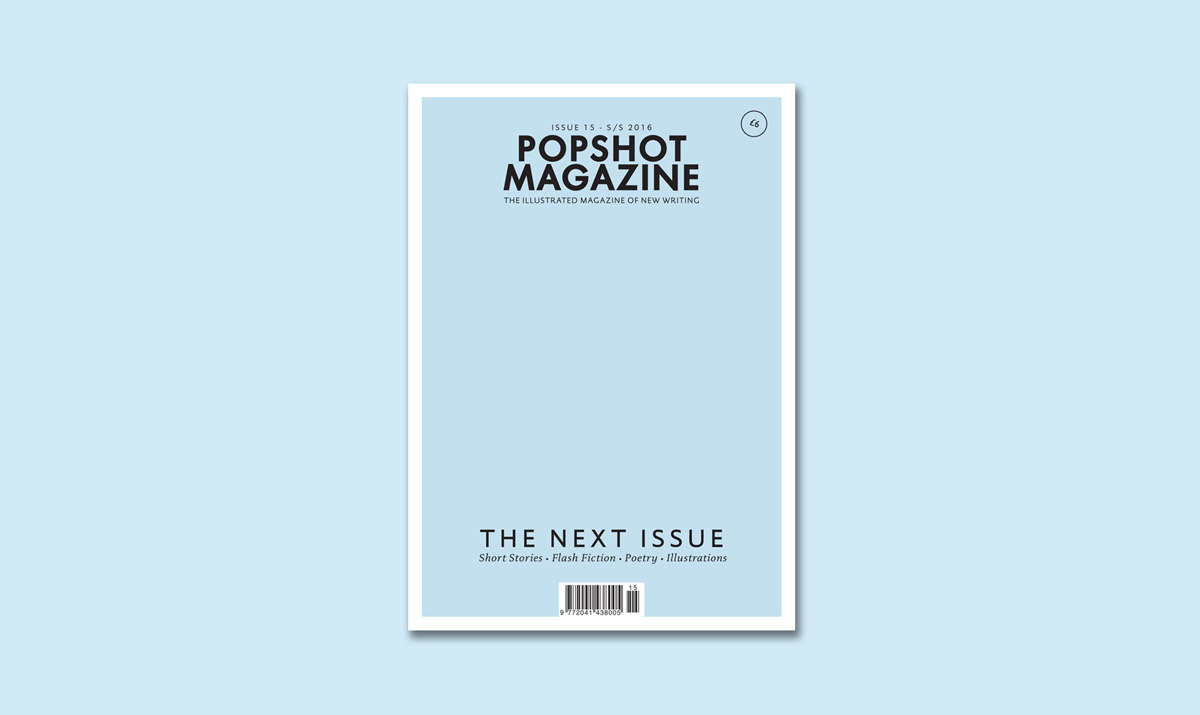
LITERARY SUBMISSIONS OPEN IN ONE WEEK
In advance of submissions opening for our fifteenth issue, our editor shines a light on what kind of writing we’ll be looking out for.
If you’ve never read the What Editors Want article on The Review Review, I can’t stress enough what a valuable piece of writing it is. It’s not a quick read but it provides some of the most measured and sage advice for writers submitting their work to literary magazines that I’ve ever read. What it understandably isn’t able to do is be more specific about the writing that each magazine is looking for — so with submissions for our fifteenth issue just around the corner, I thought I’d give a brief insight here.
When it comes to fiction, Popshot has built a reputation for publishing stories about the weird, the wonderful and the slightly macabre. In our latest issue the most popular story, entitled The Basement, told the tale of two mysterious aunts who raise their orphaned nieces whilst maintaining a fascinating secret that the nieces go on to inherit. In our thirteenth issue it was The Men Of Burr, the wartime story of a social outcast who through a unique skill becomes a local hero. In our eleventh issue it was The Memory Jar, a heart-rending short that drops us into the lives of a devoted couple who grow increasingly dependent on their vast collection of memory jars.
Why did we choose these stories and what is it about them that our readers have connected to? Firstly, they’re written clearly and aren’t fussy, allowing the reader to lose themselves in the story rather than try to navigate what’s going on. Arguably, the best stories are written in such a way that we forget a writer has even written them. Secondly, they capture your attention from the first line, providing enough detail to instantly understand the scene but not so much that the reader’s curiosity is met. If the first line makes you want to read the second and the second line makes you want to read the third, that’s where we stumble across the hallowed ground of ‘unputdownable’. Thirdly, we love a twist, an unexpected turn or something that will stir the emotion. If a story brings out our gooseflesh, we put it in the magazine. Those stories that hit us in the viscera — the ones that reallymake us feel something — are the ones we look to publish. Get out our gooseflesh and you’ll go straight onto the shortlist.
What we look for in poetry is much the same as with fiction — clear writing, being hooked from the first line, being emotionally stirred — but it’s much more a question of beauty. Not necessarily in terms of its subject matter but in the way it’s composed; the beauty in the language that’s been chosen and the ability to ensure that each word is weighed, measured and found to say much more than just the word itself. It was Samuel Taylor Coleridge who said that poetry is “the best words in the best order” and as hard as we’ve tried, it’s difficult to find a definition much more punchy than that. Perhaps the finest recent example of a poem that ticked every box we had was Aki Schilz’s piece If I Could Undo Any Mistake It Would Be You which was published in our twelfth issue.
Ultimately, if you would love to see your writing published and illustrated in Popshot, there’s no better way of understanding the work that we put in the magazine than by reading the magazine itself. We say it a lot but there’s a remarkable correlation between those that have read Popshot and those whose poetry and short fiction ends up being published in its pages. In the last four issues of the magazine, 50-70% of our contributors have either been print subscribers, digital subscribers or have read a copy of the magazine before. So, if you would like to increase your chances of getting in — whilst supporting Popshot at the same time — pick up a single copy from £6 plus postage or subscribe from £10 a year and get our latest issue as the initial copy, followed by our next two issues over the coming year plus free access to our digital edition which contains every issue we’ve ever published.
If you’re interested in submitting, head to our submit page to find out what to do next. Here’s to reading some of the finest new writing yet.
— Jacob Denno, Editor
